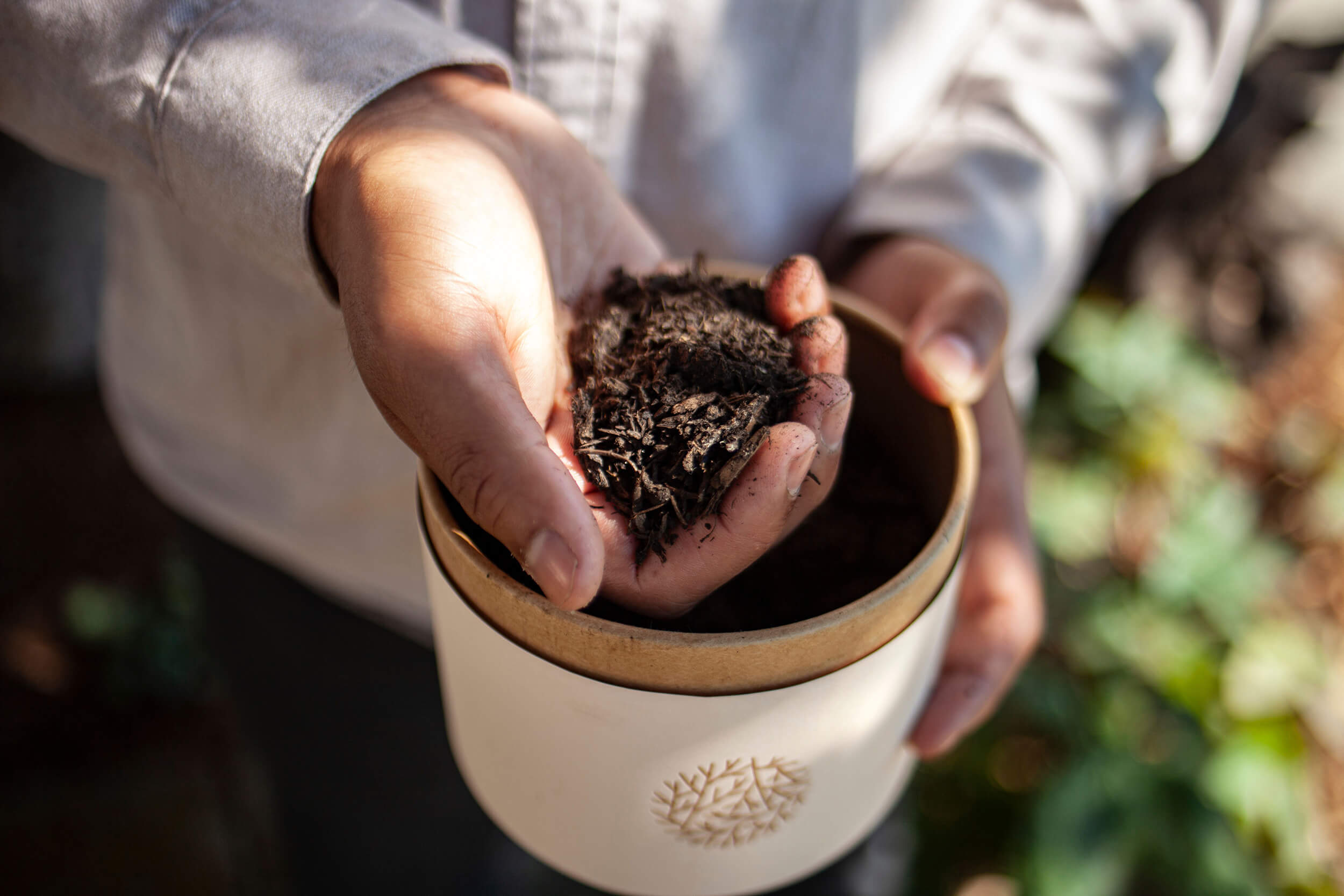An interview with the creator of human composting
After years of research and design, Katrina Spade developed the process of human composting and helped Washington State become the first state to legalize it in 2019. Katrina founded Recompose, a full-service green funeral home serving clients nationwide. As a public benefit corporation and the world’s first human composting company, Recompose is growing a worldwide movement to reimagine the end-of-life experience to be rooted in nature.
Why did you dedicate a decade of your life to creating a new type of death care?
As a graduate student in architecture, I began looking at the U.S. funeral industry because I knew I didn’t want to be cremated or buried. I developed human composting as a scalable, sustainable, urban solution to the problem of toxic funeral practices. Rural places have natural burial—a lovely option—but cities lack land to use for any kind of burial. Cremation then becomes the default but often doesn’t align with people’s desire to help the planet with their final act. Composting allows a return to the earth, saves a metric ton of carbon per person over conventional death care, and is designed for the urban landscape—it can conceivably care for billions of people.
How does human composting work?
The key is to create the perfect environment for natural decomposition to occur and microbes to thrive. Our team places the body and a carefully calibrated mixture of plant materials inside specially-designed steel vessels. We monitor aeration and manage the transformation into soil over the next two to three months. At the end of the process, the soil can be kept or donated to our conservation partners, or a combination of both.
What sets Recompose human composting services apart from others?
Many on Recompose’s Services team have worked elsewhere in the funeral industry and believe a better way is possible. They encourage curiosity and learning about the death care process and strive to inform with clarity and care. The team serves as a guide to clients for multiple months during soil transformation.
What motivates you about the future of death care?
There’s a massive shift in death care towards a more open, intentional experience, and a large push to make the funeral industry greener and more transparent. Recompose is at the forefront of this shift—the world is looking to us to lead, educate, and inspire.
What gives you purpose?
A sister of Wayne, a client, took his soil back to the neighborhood where he’d lived and gardened much of his life. She told us that friends and neighbors took some of Wayne’s soil to their own gardens. I like to think that Wayne is still gardening with his neighbors. Stories like this motivate me to increase awareness about Recompose.
What are people surprised to hear?
We’ve cared for over 300 clients from across the country and world, and we have over 1,500 Precompose members—some as young as Gen Z. Precompose is a prepaid funeral plan that allows members to pay monthly or all at once for their future composting. Members have shared that it’s a tangible way for them to take climate action now and help grow the green funeral movement.
Want to learn more about human composting?
Recompose is located in Seattle’s Industrial District and open by appointment. Visit our website to schedule a virtual or in-person tour, learn more about human composting, and plan ahead.


